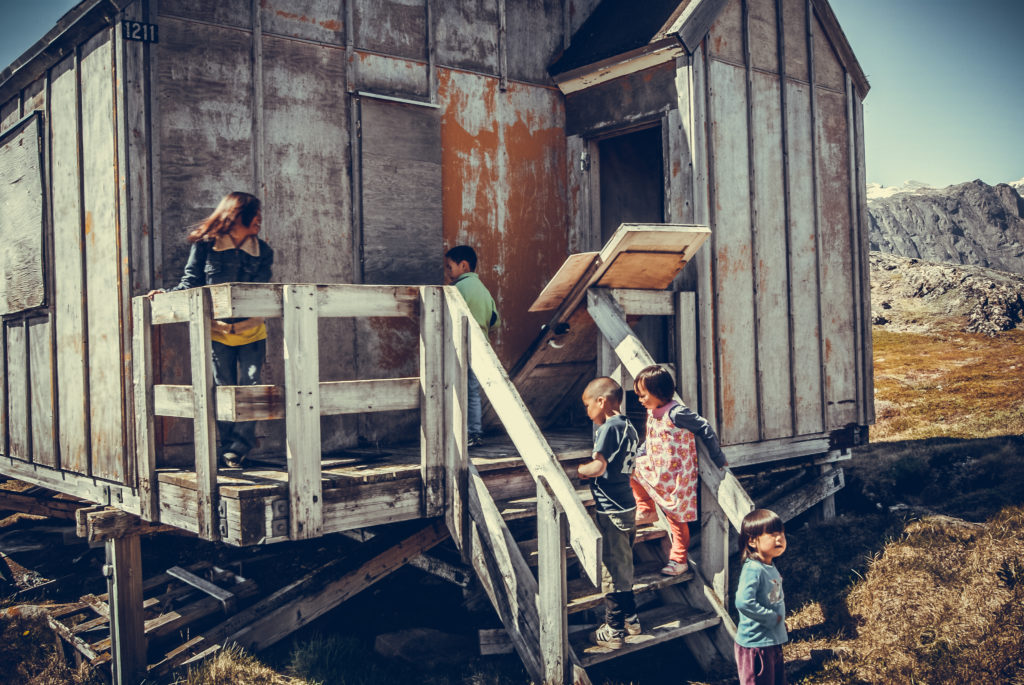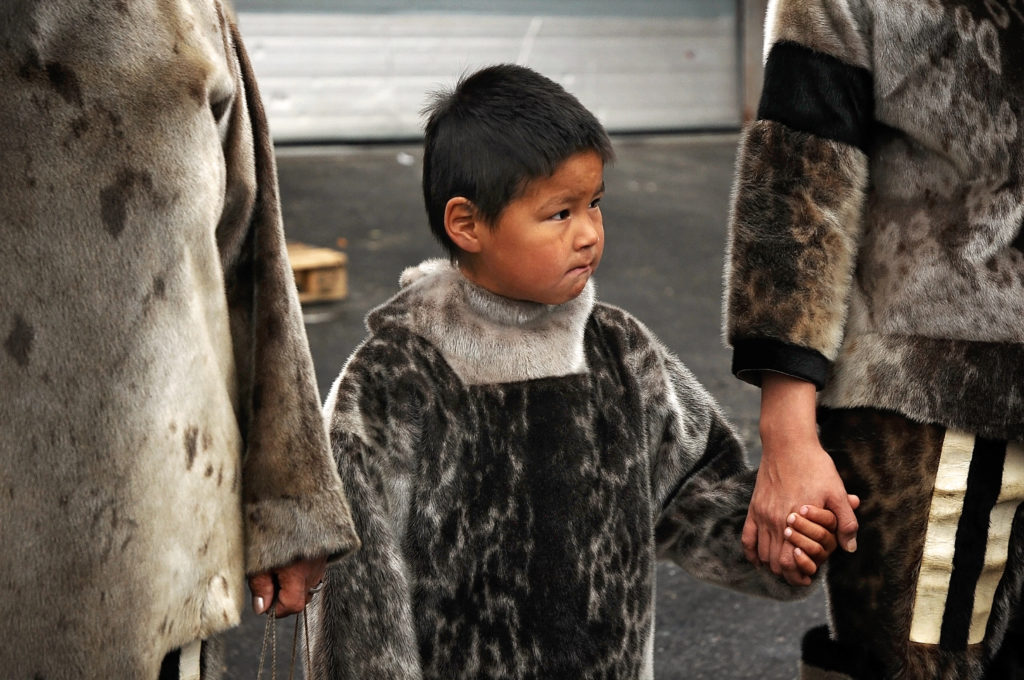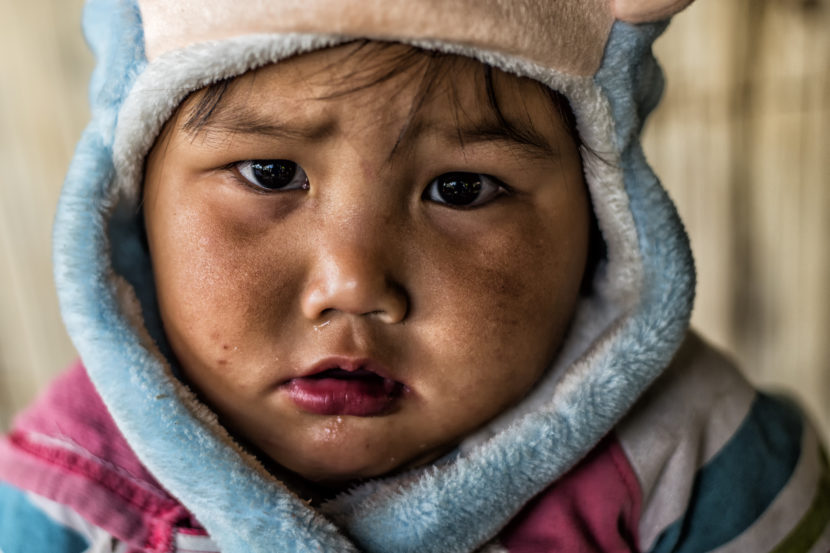In Denmark and Greenland, the legacy of colonialism continues to fracture Inuit communities—most visibly through the treatment of Indigenous children. Despite formal apologies and recent policy shifts, deep-rooted biases still drive unequal treatment and lasting psychological harm. The struggle for justice and cultural survival remains far from over.
Historical background and motivation
Denmark’s relationship with Greenland is rooted in a long history of colonial control, cultural dominance, and attempts at forced assimilation. Although formal colonial rule ended in 1953, Denmark continued to exert significant influence over Greenland’s political and social structures. Policies driven by economic interests and paternalistic ideologies continued to shape Greenlandic society through the mid-20th century, and their impact persists to this day. (Thorbjornsen et al., 2025).
Danish governance prioritized Danish language, values, and institutions while marginalizing Inuit traditions. One egregious manifestation was the removal of Inuit children from their families under the guise of offering a “better life”—most infamously in the 1951 ‘Little Danes’ experiment. These actions reflected a colonial mindset that devalued Indigenous identity and prioritized cultural assimilation, laying the groundwork for later state-sponsored assimilation policies that inflicted long-term harm on Greenlandic communities. (Thorbjornsen et al., 2025).
The 1951 “Little Danes” experiment
In 1951, the Danish government conducted a controversial social experiment in which 22 Inuit children were removed from their families in Greenland. The goal was to assimilate them into Danish culture, cut off their ties to their Indigenous heritage in an effort to reshape their identities and prepare them for roles in a Danish-dominated society. At the time, Greenland was a Danish colony grappling with widespread poverty and high mortality rates (John, 2022).
These children, aged 5 to 9, were placed with Danish foster families, where they were prohibited from speaking Greenlandic and were systematically taught to adopt Danish language, customs, and values. The intent was to mold them into a generation that would serve as a bridge for Denmark’s continued dominance over Greenland’s political and social structures (John, 2022).
Many of the children never fully reunited with their families and suffered long-term mental trauma. Helene Thiesen, a Greenlandic educator and author, who was just seven years old when she was taken from her widowed mother in 1951, later became one of the most vocal survivors of the experiment. She spent seven years in an orphanage in Nuuk after being sent to Denmark and losing her native language. Recalling her return to Greenland, she said,
“I cried all the way to the orphanage — I was so looking forward to seeing my town but I could not see anything through my tears.”
– Helene Thiesen, a prominent advocate for Inuit children’s rights
Thiesen only learned decades later that she had been part of a state-sponsored social experiment, a revelation that profoundly affected her sense of self and motivated her to reclaim her Greenlandic heritage. Stripped of their language, culture, and familial connections, survivors like Kristine Heinesen later came forward, accusing the Danish state of violating their human rights (John, 2022).
Ongoing discrimination against Inuit families
While the 1951 “Little Danes” experiment remains the most infamous episode, it was part of a broader and ongoing pattern of cultural assimilation and systemic discrimination. Danish authorities have historically targeted Inuit families through policies that disconnect them from their roots.

“Despite official recognition, Inuit culture and language continue to face systematic marginalization to this day.”
– Caterina Diotto, Philosopher and Postdoctoral Researcher at the University of Trieste
A recent and highly publicized case illustrates the persistence of this colonial mindset. In 2024, Keira Alexandra Kronvold, a Greenlandic mother, had her newborn baby taken by Danish social services immediately after birth, having failed a culturally biased parenting assessment. These Parental Competency Assessments (FKU), which Danish municipalities use to evaluate parenting skills, have come under intense criticism.
“These tests are unsuitable because they are not adapted to the target group… Greenlandic parents run the risk of achieving low test scores, leading to the conclusion that they have reduced cognitive abilities, for example, without there being any actual evidence to support this.”
– Danish Institute for Human Rights, 2022
As a result, Greenlandic children are vastly overrepresented in Denmark’s foster care system: 7% of children born in Greenland and 5% with at least one Greenlandic parent are placed in foster care, compared to just 1% of other children (Diotto, 2025).
According to the International Work Group for Indigenous Affairs (IWGIA), the assessments used to justify child removals “reflect a Eurocentric perspective on parenting” and fail to recognize “the collective and community-based approaches that are integral to Inuit culture” (Diotto, 2025).
Beyond the direct legacy of past experiments and policies, the ongoing experience of Inuit Greenlanders in Denmark reveals how colonial attitudes continue to shape lives today—particularly through cultural dislocation, language loss, and systemic exclusion.
Life in Denmark: cultural erasure and identity crisis
Despite formally holding Danish citizenship, Inuit individuals regularly face institutional discrimination and widespread prejudice that hinder their integration and access to essential services. As the Special Rapporteur on the Rights of Indigenous Peoples, José Francisco Calí Tzay, highlights in his 2023 report, Inuit living in Denmark often describe feeling like “invisible ghosts,” lacking adequate representation and recognition of their unique cultural identities (Calí Tzay, 2023).
For instance, cultural dislocation impacts educational outcomes for Inuit youth. Schools in Denmark offer limited support for Greenlandic languages or cultural practices, resulting in lower educational attainment and higher dropout rates among Inuit students. A 2019 study revealed that Inuit students in Denmark dropped out at rates nearly double those of ethnic Danes, driven largely by cultural isolation, language barriers, and curricula that neglect or misrepresent Greenlandic history and traditions (Calí Tzay, 2023).
The issue of homelessness further underscores the severity of cultural marginalization. Inuit Greenlanders are significantly overrepresented among Denmark’s homeless population—comprising approximately 9% of those in shelters despite representing less than 1% of the total population (Calí Tzay, 2023). This disproportionate homelessness rate is symptomatic of broader structural inequalities, including employment discrimination, inadequate mental health services, and social stigmatization.
Long-term impact: psychological trauma and social marginalization
The consequences of Denmark’s assimilation policies have profoundly shaped the psychological and social wellbeing of Inuit Greenlanders, leaving enduring scars that persist across generations. Survivors of these experiments frequently suffer from severe psychological trauma, identity confusion, and difficulties maintaining family relationships. Many of these children, forcibly uprooted from their families and cultural contexts, ended up profoundly “lost, turning to alcohol or begging on the frozen streets of Nuuk” (Jiménez Barca, 2025).
These assimilationist practices extended beyond children. Inuit women were also subjected to invasive policies aimed at controlling their reproductive autonomy—most notably through the forced insertion of intrauterine devices (IUDs) during the 1960s and 1970s. This campaign, known as the “Spiral Case,” affected thousands of women and girls, many as young as 12, often without their knowledge or consent (UNRIC, 2024).
“Our uterus, which is our most sacred internal organ, should be untouchable and it is our human right to have the right to have children and start a family. No government should decide over our uterus.”
– Naja Lyberth, Greenlandic women’s rights activist and a victim of the IUD campaign
The forced sterilization campaign left deep psychological and emotional wounds. Many victims of the Spiral Case experienced a lasting sense of violation and mistrust toward Danish authorities. Some suffered lifelong confusion and grief over unexplained infertility, compounding personal suffering and reinforcing collective trauma across Greenlandic communities (Jiménez Barca, 2025).
The intergenerational nature of this trauma further exacerbates social challenges. Families fractured by past assimilation policies struggle to rebuild cultural and communal connections, resulting in ongoing cycles of disadvantage. Without targeted, culturally appropriate psychological and social support, Inuit communities remain vulnerable, highlighting Denmark’s urgent responsibility to address these historical injustices and their enduring impacts comprehensively and empathetically.
Legal challenges and the demand for justice
Decades after Denmark’s forced assimilation experiments inflicted lasting psychological harm on Inuit Greenlanders, survivors launched a landmark legal challenge, asserting severe violations of their human rights. According to their lawyer, Mads Pramming, the experiment left them trapped between identities, “neither from Greenland nor from Denmark” (Murray, 2022).
Under growing public scrutiny, Denmark’s government finally offered a formal apology and financial compensation of 250,000 Danish kroner ($38,000) to each surviving participant, explicitly acknowledging the “inhumane, unfair, and heartless” nature of the policy (Murray, 2022).
Moreover, further legal challenges arose around Denmark’s discriminatory child welfare practices, especially the culturally biased Parental Competency Assessments (FKU). Following widespread protests over the high-profile case of Keira Alexandra Kronvold in 2024, Denmark abandoned these tests in January 2025 and pledged to reassess previous unjust removals, marking another significant move toward justice for Greenlandic families (Bryant, 2025).
However, the fight for justice continues. The “Spiral Case,” which involved the forced implantation of intrauterine devices (IUDs) in Inuit women, remains under investigation. While legal victories and policy reforms offer some measure of redress, they cannot undo the decades of loss and emotional trauma endured by Inuit families. Real healing requires more than compensation—it demands a sincere reckoning with the past and a commitment to building an equitable future shaped by Indigenous voices.
Toward justice, healing, and Indigenous dignity
The legacy of Denmark’s colonial assimilation policies continues to impact Inuit communities, particularly through ongoing discrimination in education, foster care, and mental health access. As the UN Special Rapporteur José Francisco Calí Tzay has stressed, meaningful reconciliation must go beyond symbolic gestures—it must include systemic reform, Indigenous-led child welfare strategies, and guaranteed access to culturally rooted mental health care and education.
Experts and organizations such as the International Work Group for Indigenous Affairs (IWGIA) call for stronger implementation of international human rights standards, including the ILO Convention 169 (ILO, n.d.) and the UN Declaration on the Rights of Indigenous Peoples (UN, n.d.). This includes ensuring access to education in Inuit languages, targeted mental health support, and participatory policy-making that centers Inuit voices.

Humanium stands in solidarity with Inuit children and families who have endured historical injustice and continue to face marginalization today. We believe in the fundamental right of every Indigenous child to grow up with their language, culture, and family intact.
Join Humanium by sponsoring a child, making a donation, or becoming a member or volunteer. Your support helps us push for equity, dignity, and a world where every child is free to belong.
Written by Lidija Misic
Bibliography:
Bryant Miranda (2025), Denmark to ditch ‘parenting competency’ tests for Greenlandic families. Retrieved from The Guardian at https://www.theguardian.com/world/2025/jan/20/denmark-to-ditch-parenting-competency-tests-for-greenlandic-families, accessed on May 10, 2025.
Calí Tzay José Francisco (2023), Report of the Special Rapporteur on the rights of Indigenous Peoples on his visit to Denmark and Greenland. Retrieved from The University of Arizona at https://un.arizona.edu/search-database/report-special-rapporteur-rights-indigenous-peoples-his-visit-denmark-and-greenland, accessed on May 10, 2025.
Diotto Caterina (2025), A colonial legacy. Retrieved from Safi Network at https://safi-network.org/blog/a-colonial-legacy, accessed on May 4, 2025.
ILO (n.d.), ILO Convention No. 169. Retrieved from ILO at https://www.ilo.org/publications/ilo-convention-no-169-brochure, accessed on May 10, 2025.
Jiménez Barca Antonio (2025), Denmark’s dark history with Greenland: Children torn from their families and women forcibly fitted with IUDs. Retrieved from El País at https://english.elpais.com/international/2025-01-15/the-deep-scars-between-greenland-and-denmark-children-torn-from-their-families-and-women-forcibly-fitted-with-iuds.html, accessed on May 10, 2025.
John Tara (2022), How a failed social experiment in Denmark separated Inuit children from their families. Retrieved from CNN at https://edition.cnn.com/interactive/2022/01/world/greenland-denmark-social-experiment-cmd-idnty-intl-cnnphotos, accessed on May 4, 2025.
Murray Adrienne (2022), Denmark says sorry to children of failed experiment. Retrieved from BBC at https://www.bbc.com/news/world-europe-60646898, accessed on May 10, 2025.
Thorbjornsen Marta et al. (2025), Denmark and Greenland: From Colonialism to Contemporary Control. Retrieved from Mondo Internazionale at https://mondointernazionale.org/focus-allegati/denmark-and-greenland-from-colonialism-to-contemporary-control, accessed on May 4, 2025.
UN (n.d.), United Nations Declaration on the Rights of Indigenous Peoples. Retrieved from UN at https://social.desa.un.org/issues/indigenous-peoples/united-nations-declaration-on-the-rights-of-indigenous-peoples, accessed on May 10, 2025.
UNRIC (2024), Speaking up for women in Greenland spiral-case: “We were frozen in our bodies for decades.” Retrieved from UN at https://unric.org/en/speaking-up-for-women-in-greenland-spiral-case-we-were-frozen-in-our-bodies-for-decades/, accessed on May 10, 2025.


